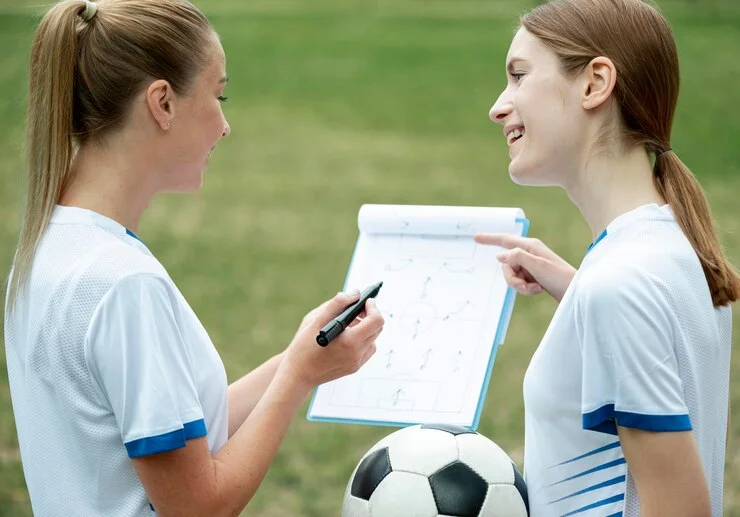Team sports are about much more than just playing a game. They bring people together and build trust, unity, and strength. For anyone trying to join a team, the interview process is an important step. This is where candidates can show qualities like teamwork, communication, and leadership. Team sports interviews don’t test physical skills. They also check a person’s attitude, mindset, and team fit. Preparing for these interviews can help you stand out.
This guide covers common team sports interview questions, what they reveal, and how to answer them well.
Why Preparation Is Important for Team Sports Interviews
In team sports, being skilled isn’t enough; players also need good people skills and leadership abilities, flexibility, and a growth mindset. Interview questions help find out how you handle different situations with your teammates. Preparing your answers lets you show both your skills and the important qualities needed for team success. Answering these questions with confidence shows that you’re ready for the role.
Common Interview Questions for Team Sports
Here are some common questions asked in team sports interviews. These questions help interviewers see how well you fit in the role and how you handle teamwork.
Teamwork and Collaboration

- How do you handle conflicts with teammates?
Team sports bring people together, but disagreements can happen. Interviewers ask this to see if you can resolve conflicts. A good answer tells of a time you calmly resolved a disagreement. It should show that everyone got along afterward.
- Describe a time when you supported a teammate in a tough situation?
Helping teammates during difficult times shows kindness and understanding. Describe how you noticed a teammate’s need for support and what you did to help them.
- What role do you usually play in a team, and how do you help your teammates?
Each team member has a different role, like being a motivator, planner, or leader. Explain what role you play and how it helps the team. This shows your teamwork skills and adaptability.
Leadership and Responsibility

- Have you ever been a leader on a team? What was it like?
Here, talk about a time when you took on a leadership role. Describe your responsibilities, how you helped your team members, and how your leadership made the team better.
- How do you keep yourself and others motivated during tough games or training?
This question checks your ability to inspire others. Talk about ways you motivate yourself and your teammates during challenges and how it lifts the team’s spirits.
- What would you do if a teammate were struggling with their performance?
Helping a struggling teammate shows empathy and a team-focused attitude. Describe how you would approach the teammate kindly, offer help, and encourage them to keep going.
Communication Skills

- How do you communicate effectively with your team on and off the field?
Communication is important in team sports, affecting strategy and trust. Share examples of how you keep communication clear, whether by talking directly or encouraging open discussions.
- Describe a time when miscommunication affected the team. How did you fix it?
Miscommunication can hurt a team. Sharing an example shows your ability to solve issues and keep communication smooth for the good of the team.
- How would you give constructive feedback to a teammate?
Giving feedback requires care and respect. Describe how you provide supportive and helpful feedback to help teammates improve without hurting their confidence.
Handling pressure and setbacks

- How do you stay motivated after a loss or a bad performance?
Team sports have both highs and lows. Your answer should show how you think about setbacks, learn from them, and use them to get better.
- Can you describe a time when you made a mistake in a game? What did you learn?
Mistakes happen, but learning from them is key. Share a specific instance, what you learned, and how it helped your performance in the future.
- How do you manage stress or anxiety during big games?
Managing stress is crucial. Talk about techniques you use to stay calm, like deep breathing, visualization, or focusing on goals.
Adaptability and Learning Mindset

- How do you adjust to new strategies or coaching styles?
Adaptability is essential in sports. Describe how you embrace change by learning quickly and adjusting to new techniques for the team’s benefit.
- What steps do you take to improve your skills outside of regular training?
This question checks your commitment to improvement. Mention things you do, like watching game footage, setting goals, or working with a coach to get better.
- Describe a time when you took on a different role to help the team?
Team success sometimes requires players to change roles. Share an example of when you took on a new role, how it felt, and how it helped the team.
Tips for Answering Team Sports Interview Questions
1. Use the STAR method.
The STAR method (Situation, Task, Action, Result) is a good way to answer interview questions. Start with the situation, describe your role or task, explain your actions, and finish with the result or lesson learned.
2. Show humility and a learning mindset.
While talking about your experiences, be humble about challenges. This shows you are willing to learn and improve alongside your teammates.
3. Highlight Personal Growth and Team Contribution
Share how you’ve helped the team’s morale or performance, showing that you care about team success as much as your achievements. This shows your dedication to teamwork.
Preparing questions for the interviewer
It’s good to have questions ready for the interviewer. Here are some examples that show your interest in the team’s culture:
- What is the team culture like, and how do new members adapt?
This question shows your interest in the team’s values, helping you see if the team’s environment suits you.
- How does the team support individual growth along with team success?
This question shows you care about both personal growth and teamwork.
- What are some challenges the team is facing?
Asking about challenges shows that you’re ready to face obstacles with the team, showing a proactive mindset.
Conclusion and Key Takeaways:
Preparing for team sports interviews can boost your confidence and help you highlight your strengths. The questions discussed reveal qualities like adaptability, communication, resilience, and empathy—essential for a successful sports career. With these responses in mind, you’ll be ready to show interviewers that you’re not only skilled but also a great teammate. Taking time to practice and develop thoughtful answers ensures a positive impression, helping you succeed in your next team sports interview.








